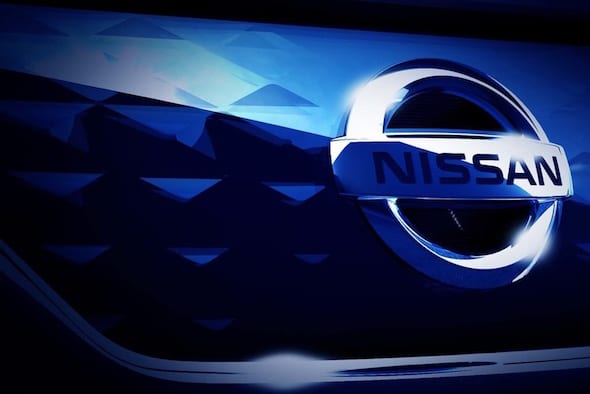The long-awaited unveiling of the new take on the world’s first mass-market pure electric vehicle, the Nissan LEAF, is just weeks away, after the automaker set the time and place for September 6, in Japan.
Nissan said on Wednesday that the redesigned, next-generation model of the LEAF, which it says still holds the mantle for the world’s best-selling EV, was “packed” with advanced technologies that would “raise the bar” for the EV market.
New features were said to include “enhanced vision” and a better sense what is around the car, as well as premium interiors designed to, well, look fancier and be “a touch” more comfortable.
Beyond the announcement of the unveiling date, details on the new LEAF – including it’s price and when it will be rolled out to global markets – were scant, presumably they are being saved for the big launch.
Features that have been confirmed by Nissan, however, are the use of its ProPILOT autonomous driving technology, which debuted in July 2016 on the Nissan Serena in Japan.
ProPILOT allows the driver to enable autonomous driving functionality when driving on single-lane highways at the touch of a button, after which the technology will control steering, acceleration and braking.
Nissan has also confirmed the new LEAF will feature e-Pedal technology, a switch that allows drivers to accelerate, decelerate and stop using just one pedal.
Nissan says the e-pedal should be able to cover 90 per cent of a driver’s needs – much as the regenerative braking function does in Tesla EVs – excluding bringing the car to a full stop.
Filed under “rumour” are reports that the new LEAF will have a range of between 320-480km, potentially even 550km, almost double that of the previous model, due to a bigger capacity battery.
And pricing for the mark 2 model also remains unconfirmed. According to the CarsGuide website, the most recently listed price for a (now discontinued) 2017 LEAF hatchback was $51,500.
The timing of deliveries to Australia – also unknown, although 2018 has been suggested – will be all-important to a market that seriously lags the rest of the world, due in no small part to the lack of available options.
In 2016 there were just three EV models on the Australian market for less than $60,000: the Nissan Leaf, the plug-in hybrid SUV, Mitsubishi Outlander, along with the Renault Kangoo ZE commercial vehicle.
However, both the Leaf and the Outlander had sold out their Australian stocks by mid-2016 and the Renault Kangoo ZE is a van that is only available through special arrangement with Renault.
The timing of delivery will be important for Nissan in terms of competition, too, with Tesla’s mass-market EV offering, the Model 3, due for delivery to Australia in 2019.
As for the car’s appearance, aside from a few blurry leaked photos, Nissan has been particularly careful to guard this secret up until the launch, teasing only with extreme close-ups of certain parts of the car, such as the headlights pictured above, and cartoon silhouettes of the EV in the below video.
According to one website, the LEAF’s new shape is “said to be inspired by airplane wings.”












